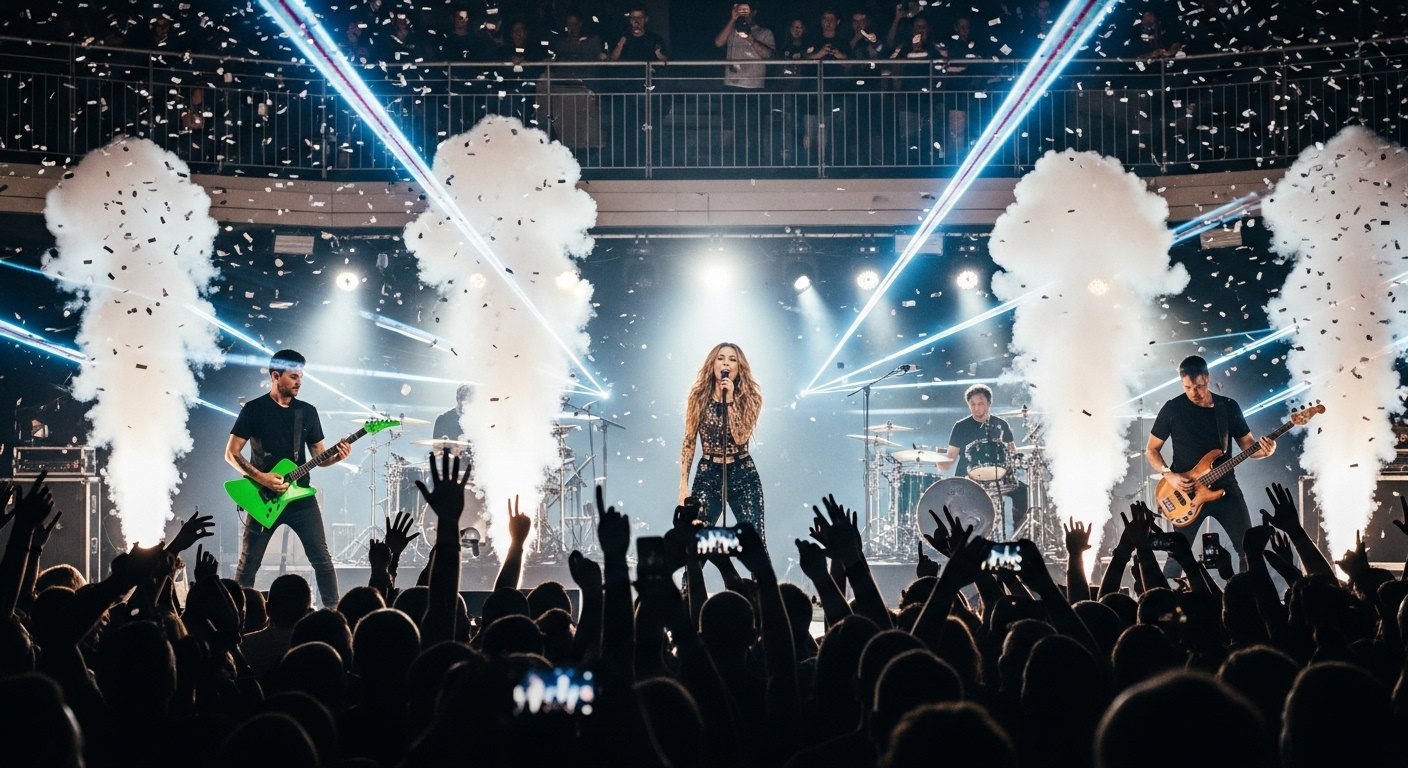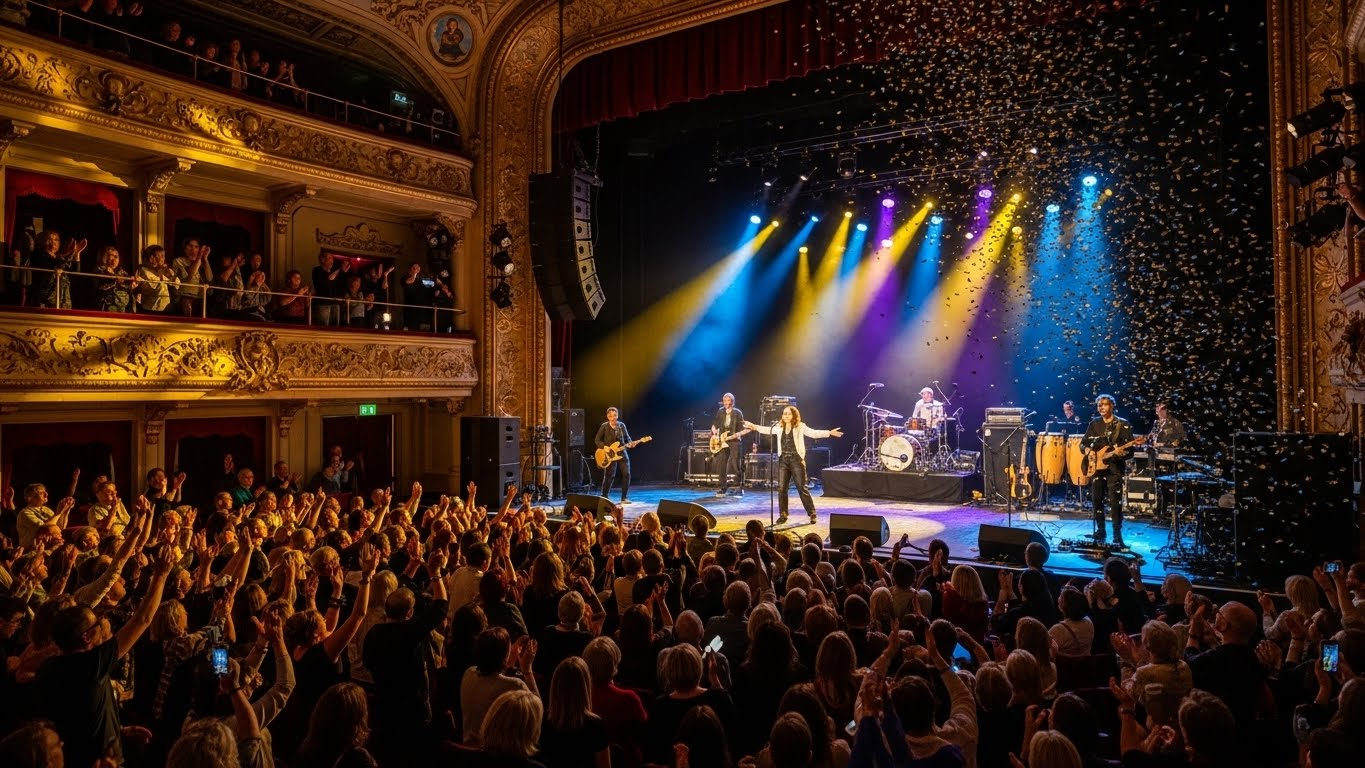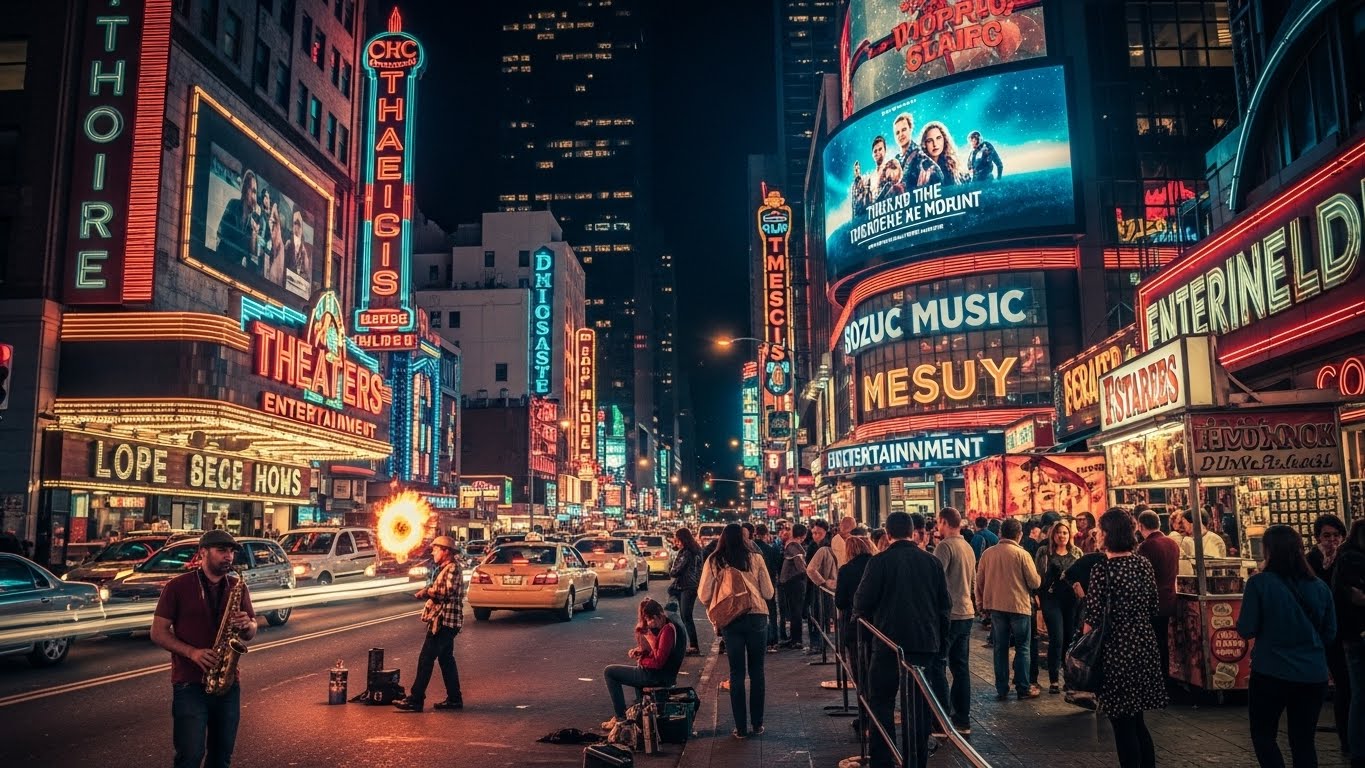Entertainment has been an essential part of human existence since the beginning of civilization. From the rhythmic beats of tribal drums to the dazzling lights of modern cinema, entertainment has constantly evolved, reflecting our changing societies, technologies, and cultures. It has shaped how we feel, interact, and escape the daily routines of life. Today, entertainment is more than just a source of pleasure; it is an industry, an art, and a reflection of humanity’s endless creativity. In this blog, we’ll take a deep dive into the diverse and dynamic world of entertainment — exploring its history, its modern forms, and its profound impact on our lives.
The Origins of Entertainment
Before screens and stages, entertainment began with the simplest human expression: storytelling. Ancient civilizations used stories to share wisdom, celebrate victories, and explain mysteries of life. Around fires, early humans performed dances and songs that later evolved into rituals and festivals. Entertainment was not just about fun — it was about community, identity, and tradition.
In ancient Greece, entertainment reached new heights through theater. Greek tragedies and comedies became cultural phenomena, performed in grand amphitheaters that could seat thousands. These performances were more than mere plays; they explored deep human emotions, moral dilemmas, and the complexity of fate. Similarly, in ancient Rome, gladiatorial games, chariot races, and public performances entertained citizens while reflecting the empire’s power and grandeur.
In Asia, entertainment took different yet equally fascinating forms. In China, shadow puppetry and opera became iconic. In India, storytelling through dance and music evolved into classical art forms such as Bharatanatyam and Kathakali. Across continents, entertainment remained an expression of culture and spirituality.
The Golden Age of Performance
As time moved forward, the Middle Ages brought traveling performers, jesters, and minstrels who entertained kings and commoners alike. The Renaissance period revolutionized entertainment, giving birth to the modern concept of theater and art appreciation. With the invention of the printing press, books became accessible, turning reading into a new form of personal entertainment.
By the 18th and 19th centuries, entertainment had taken on new shapes. The opera houses of Europe flourished, the circus became a sensation, and musical concerts attracted crowds like never before. Performers such as Mozart and Beethoven turned music into a form of emotional storytelling.
The birth of cinema in the late 19th century marked one of the biggest transformations in entertainment history. The first films were short and silent, but they captivated audiences with moving images that felt magical. Soon, filmmakers realized they could tell complex stories through this medium. The 20th century would become the golden age of visual entertainment.
The Rise of Cinema and Television
Cinema became the heart of modern entertainment. Silent films evolved into talkies, and black-and-white pictures transformed into colorful spectacles. Hollywood emerged as the global hub of movie production, producing stars who became cultural icons. Films were no longer just entertainment; they were experiences that made people laugh, cry, and dream.
Television brought entertainment directly into homes, changing family life forever. Sitcoms, dramas, game shows, and news broadcasts turned TV into a household companion. From the laughter of classic comedy shows to the suspense of crime dramas, television became a window to the world.
The film industry also expanded beyond Hollywood. Bollywood, Nollywood, and other regional cinemas emerged, each with its distinct storytelling style and cultural touch. The universality of human emotions made cinema a global language.
Music: The Soul of Entertainment
Music has always been the heartbeat of entertainment. It transcends language and connects people on an emotional level. From classical symphonies to rock concerts, music evolves with time yet always retains its power to move hearts.
In the 20th century, music experienced revolutions through genres like jazz, blues, rock ‘n’ roll, and pop. Artists such as Elvis Presley, The Beatles, Michael Jackson, and Madonna not only entertained but also shaped fashion, culture, and even social movements.
Today, music streaming platforms and social media have transformed how we listen to and discover music. Independent artists can reach global audiences without traditional barriers, making the music industry more inclusive and diverse than ever before.
The Digital Revolution and Online Entertainment
The 21st century introduced a digital era that completely reshaped the entertainment landscape. The internet made everything accessible with just a click. Streaming services replaced DVDs and CDs, social media became a stage for creators, and video games turned into billion-dollar industries.
Online platforms allow users to watch, listen, or play anytime and anywhere. YouTube gave birth to new forms of entertainment — vlogs, skits, tutorials, and live streaming. Gaming evolved into esports, where professional players compete in massive tournaments watched by millions.
The rise of content creators changed the definition of fame. Ordinary individuals with creativity and charisma could become global influencers. Audiences no longer just consumed entertainment; they became part of it, interacting through comments, likes, and live chats.
The Power of Storytelling in Modern Entertainment
Despite technological advancements, storytelling remains at the heart of entertainment. Whether through films, series, games, or music videos, a compelling story keeps audiences engaged.
Modern storytelling often blends genres and media. A superhero movie, for example, can combine visual effects, emotional drama, and philosophical themes. Streaming platforms have allowed creators to experiment with storytelling, offering long-form series that explore complex characters and deep narratives.
Interactive storytelling in video games and virtual reality has added a new dimension, allowing audiences to become part of the story. This evolution shows that no matter how entertainment changes, the desire for meaningful stories never fades.
The Role of Technology in Shaping Entertainment
Technology has not only expanded access but also enhanced creativity. High-definition cameras, digital animation, and computer-generated imagery (CGI) have revolutionized how entertainment is produced. Virtual reality and augmented reality offer immersive experiences that blur the line between fiction and reality.
Artificial intelligence now assists in content creation — from music composition to film editing — while algorithms personalize entertainment choices for users. This personalized approach means that every person’s entertainment experience is unique, tailored to their preferences and moods.
However, the digital age also brings challenges. The abundance of content can make it difficult for creators to stand out, and questions about copyright, privacy, and authenticity continue to grow. Balancing creativity with responsibility has become an ongoing task in the entertainment world.
The Cultural Influence of Entertainment
Entertainment does not exist in isolation. It reflects and influences society. Films, songs, and shows can challenge norms, promote awareness, and inspire change. Social issues such as equality, justice, and identity are often explored through entertainment media, reaching audiences more effectively than any lecture or report could.
Cultural representation in entertainment has become increasingly important. Audiences now demand diversity — stories that represent different voices, backgrounds, and experiences. When entertainment mirrors society truthfully, it helps people feel seen, valued, and understood.
Globalization has also made entertainment more interconnected. A Korean drama can become a global hit, a Spanish song can dominate charts worldwide, and a Hollywood blockbuster can be loved in every corner of the planet. This cultural exchange through entertainment promotes understanding and unity among nations.
The Joy of Live Entertainment
While digital entertainment dominates today, the magic of live performance remains unmatched. Concerts, theater plays, comedy shows, and sports events provide a shared human experience that screens cannot replicate.
The energy of a live audience, the thrill of unpredictability, and the emotional connection between performer and spectator make live entertainment special. Festivals and carnivals around the world continue to celebrate creativity, music, and art in vibrant ways.
Even with virtual options available, people still crave the realness of being part of a crowd, singing along to a favorite song, or cheering for their team. This proves that entertainment, at its core, is about human connection.
The Business of Entertainment
Entertainment is not just art — it is also a massive global industry. Billions of dollars flow through film studios, music labels, streaming services, and gaming companies every year. The business side of entertainment involves marketing, production, licensing, and branding.
Celebrities have become brands themselves, influencing fashion, lifestyle, and consumer behavior. Social media has amplified this, allowing stars to interact directly with fans while promoting their work.
However, the entertainment business is also competitive and unpredictable. Trends change quickly, and what is popular today might be forgotten tomorrow. Success requires innovation, adaptability, and a deep understanding of audience desires.
Entertainment as a Form of Escape and Healing
One of the greatest powers of entertainment is its ability to provide escape. In times of stress, sadness, or uncertainty, a good movie, song, or game can transport us to another world. It allows people to momentarily forget their worries and find comfort.
Psychologists often emphasize the therapeutic role of entertainment. Laughing at a comedy show, crying during a touching film, or dancing to music can release emotions and reduce mental burdens. Entertainment connects to the deepest parts of the human psyche, offering not just amusement but also healing.
During challenging times — such as the recent global pandemic — entertainment became a lifeline. People turned to online concerts, virtual games, and digital art to stay connected and inspired. This showed that entertainment is not a luxury but a necessity for emotional well-being.
The Future of Entertainment
The future of entertainment promises even more transformation. With the rise of artificial intelligence, holography, and virtual environments, the possibilities are limitless. Audiences may soon interact with digital performers, experience 3D concerts from home, or participate in storylines that adapt in real time.
Moreover, entertainment will continue to merge with other aspects of life — education, business, and communication. Gamified learning, virtual classrooms, and digital art galleries already hint at this integration.
However, as entertainment becomes more immersive, the challenge will be to maintain authenticity. Genuine human creativity will always be the foundation of great entertainment, no matter how advanced technology becomes.
Conclusion: The Endless Rhythm of Entertainment
Entertainment is far more than amusement; it is the rhythm of human life. It captures our emotions, reflects our societies, and connects us across cultures and generations. From ancient storytelling to futuristic virtual worlds, entertainment continues to evolve while staying true to its purpose — to make people feel alive.
Every laugh, tear, song, or applause is a testament to our shared humanity. As long as humans exist, the desire to create and enjoy entertainment will never fade. It is our way of celebrating imagination, expressing emotion, and finding joy in the simple yet profound act of being entertained.



